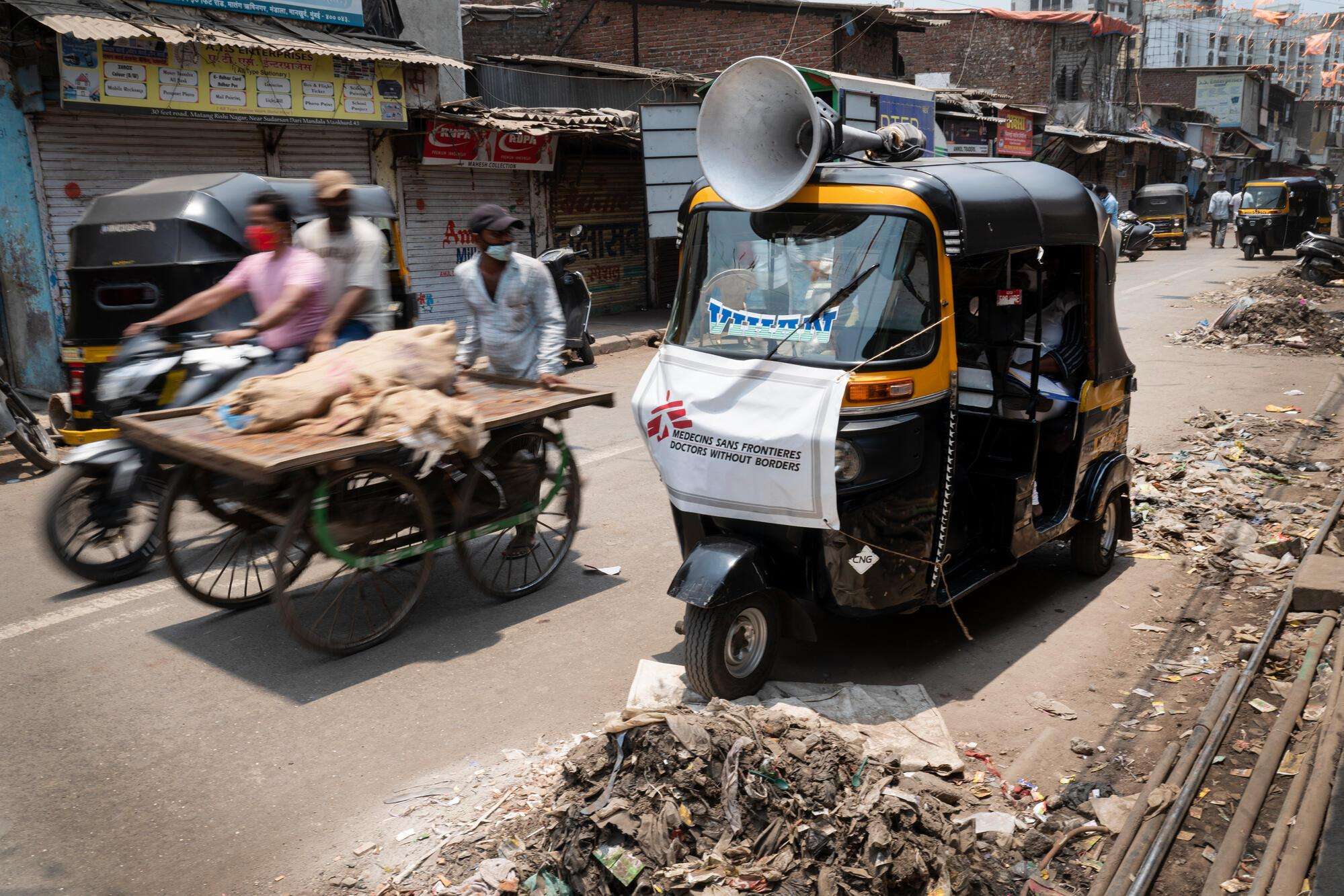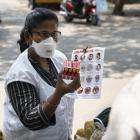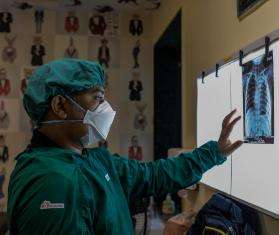In Manipur, our project caring for people living with HIV, TB, DR-TB, and hepatitis C was severely disrupted when conflict broke out in May, effectively dividing the state into two ethnically separate areas. At the end of the year, as this continued to pose significant challenges to the provision of care and the medical supply chain, our teams were monitoring needs and exploring possible short-term emergency interventions.
In Mizoram state, northeast India, we offered basic health care and specialist referrals for refugees from Chin state, Myanmar, at our clinic in Zawkhatar. In displacement camps in the southern-border districts of Champhai, Siaha and Lawngtlai, we provided newly arrived families with relief items such as tents, cooking and hygiene kits, as well as access to water and sanitation facilities and medical referrals.
We closed our sexual violence treatment center in the capital, New Delhi, in November but will continue to work with other organizations to call for improved access to care for survivors in India. This involves addressing the existing legal and medical barriers that prevent people from seeking urgent treatment.
MSF’s other projects in India include the provision of comprehensive care to people living with advanced HIV in Bihar, essential health care via mobile clinics in remote areas of Chhattisgarh and mental health services in Jammu and Kashmir.










